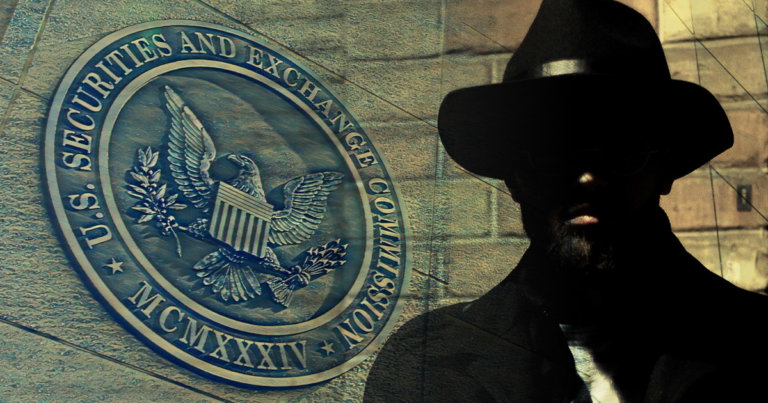 US: SEC quietly signs deal to spy on crypto DeFi transactions
US: SEC quietly signs deal to spy on crypto DeFi transactions US: SEC quietly signs deal to spy on crypto DeFi transactions
Authorities have been quick to jump on the crypto regulatory train this year, and the DeFi market is not being left behind.

Cover art/illustration via CryptoSlate. Image includes combined content which may include AI-generated content.
The US Securities and Exchange Commission (SEC), an American agency that overlooks securities markets, has contracted one blockchain analytics firm to help monitor and regulate the burgeoning decentralized finance (DeFi) industry, as per a weekend report on Forbes.
Spying on transactions
Signed with AnChain.AI, the initial value of the contract is $125,000, with five separate one-year $125,000 option years for a total of $625,000. The firm is a San Jose-based blockchain startup that focuses on tracking illicit activity across crypto exchanges, DeFi protocols, and traditional financial institutions.
"SEC Signs Deal [with https://t.co/kpYEuVTrEZ] To Investigate DeFi Transactions."
Expect securities enforcement actions launched against DeFi soon.https://t.co/8FjAwvp8ll pic.twitter.com/jrUTBvvku5
— Arturo Portilla (@Arturo_P_A) August 27, 2021
It recently raised over $10 million by a Susquehanna Group affiliate at an undisclosed valuation to bolster its tech stack.
Apart from monitoring known crypto wallets tied to hackers and bad actors, AnChain.AI’s predictive engine claims to identify unknown addresses and transactions that could be suspicious.
This structure allows the firm to become a predictive product that alerts of impending risks rather than a post-incident one—a feature that seems to have piqued the SEC’s interests.
It marks one of the first-ever instances of a government body signing on a blockchain player to search for illicit transactions and is part of a broader move towards regulating the crypto sector in recent times.
“The SEC is very keen on understanding what is happening in the world of smart contract-based digital assets…so we are providing them with technology to analyze and trace smart contracts,” said AnChain.AI CEO and co-founder Victor Fang, in a statement.
DeFi warning
Earlier this month, SEC Chairman Gary Gensler warned that DeFi operators were akin to ‘promoters’ and ‘sponsors’ who were involved in both creating and marketing their projects out to the masses.
“There’s still a core group of folks that are not only writing the software, like the open-source software, but they often have governance and fees…There’s some incentive structure for those promoters and sponsors in the middle of this,” said Gensler at the time.
“Frankly, at this time, it’s more like the Wild West,” he added.
The comments are a far cry from what DeFi projects are supposed to be—or at least what the ethos of DeFi really is.
Proponents envision a wholly decentralized, multi-trillion-dollar financial ecosystem where smart contracts handle payments, loans, exchanges, tradings, and other services, and no physical and identification barriers exist.
But with lofty dreams come lofty characters, so who’s to blame if regulation finds its way to an otherwise idealized view of the world’s financial system?









































































































